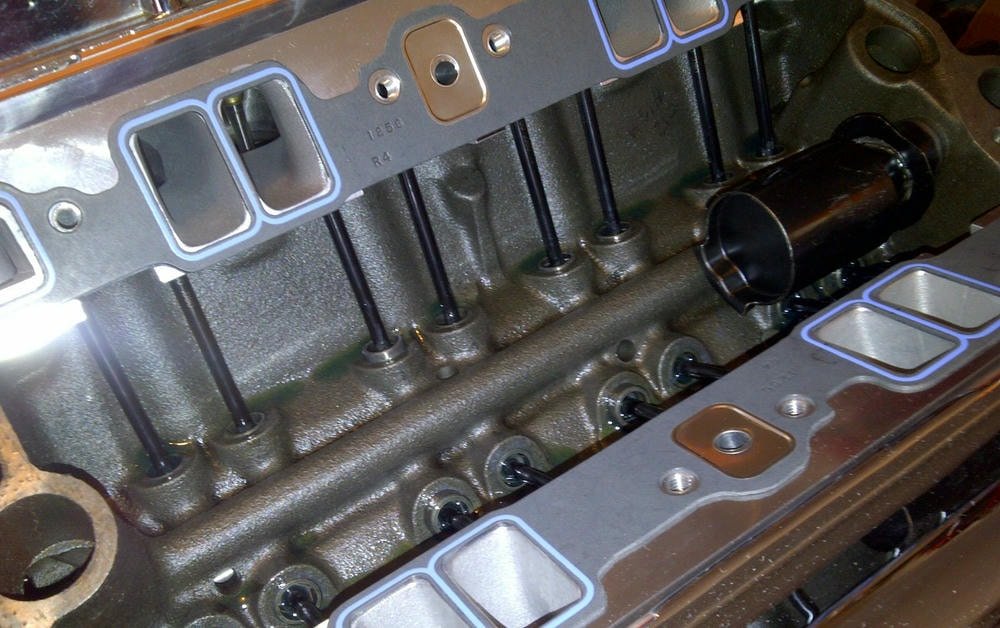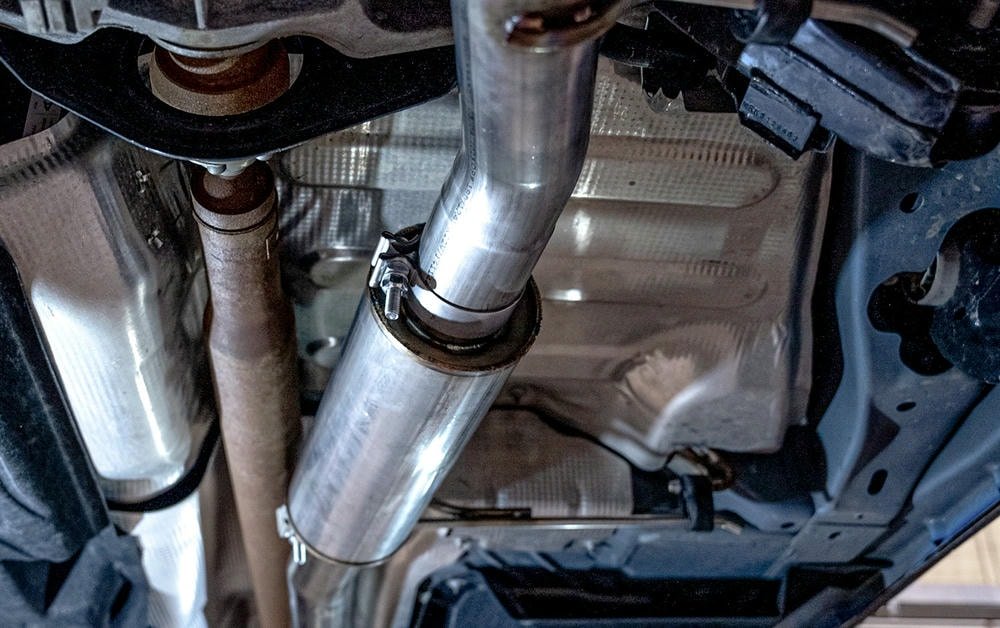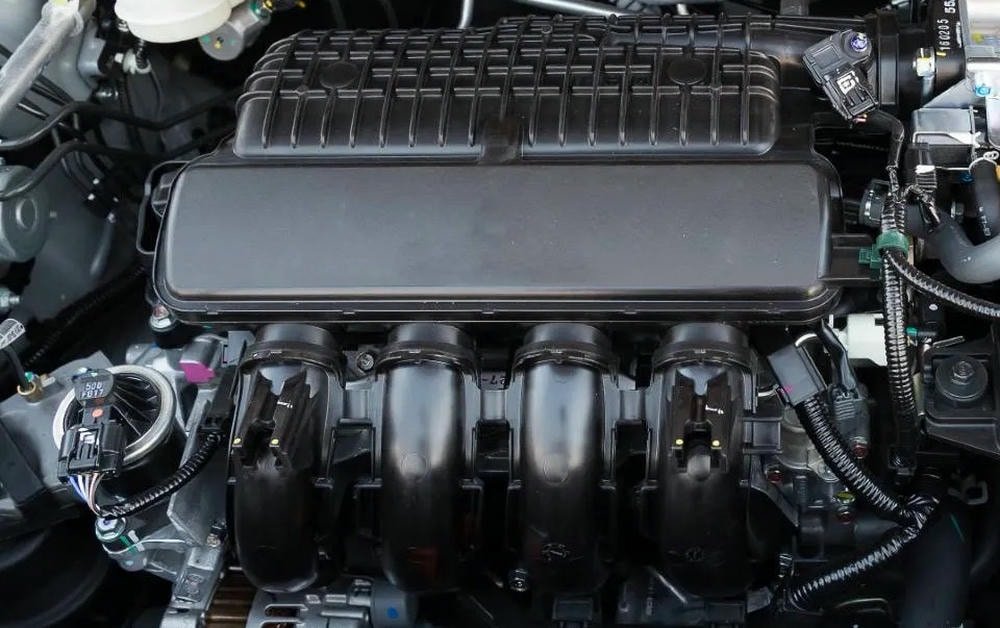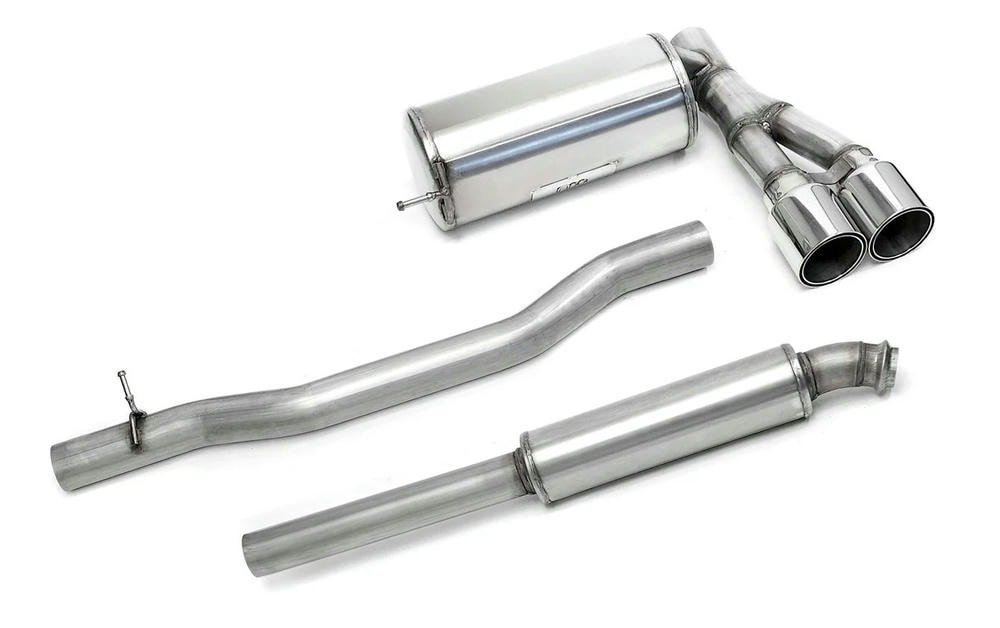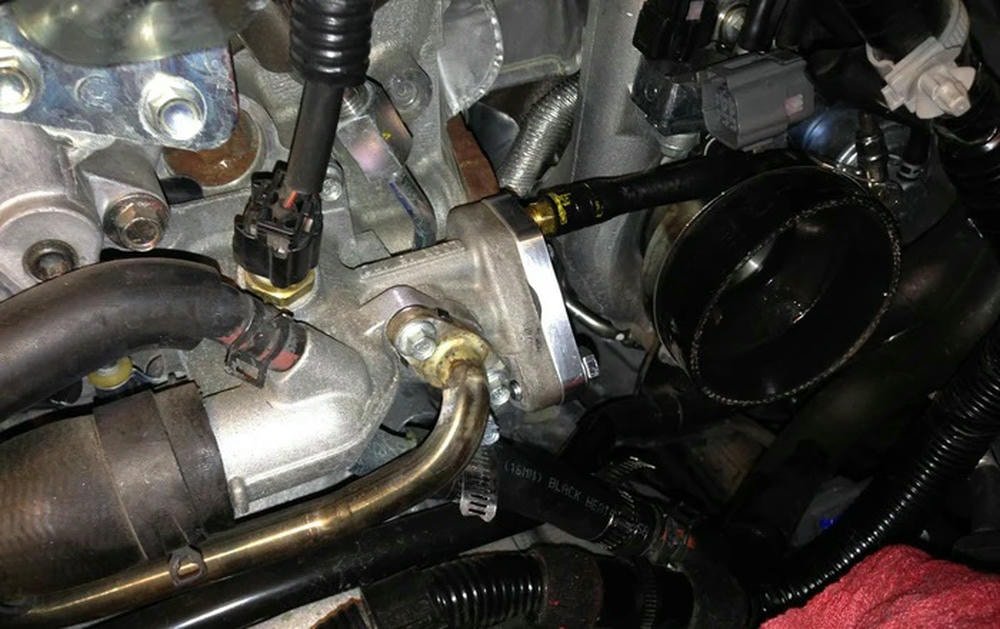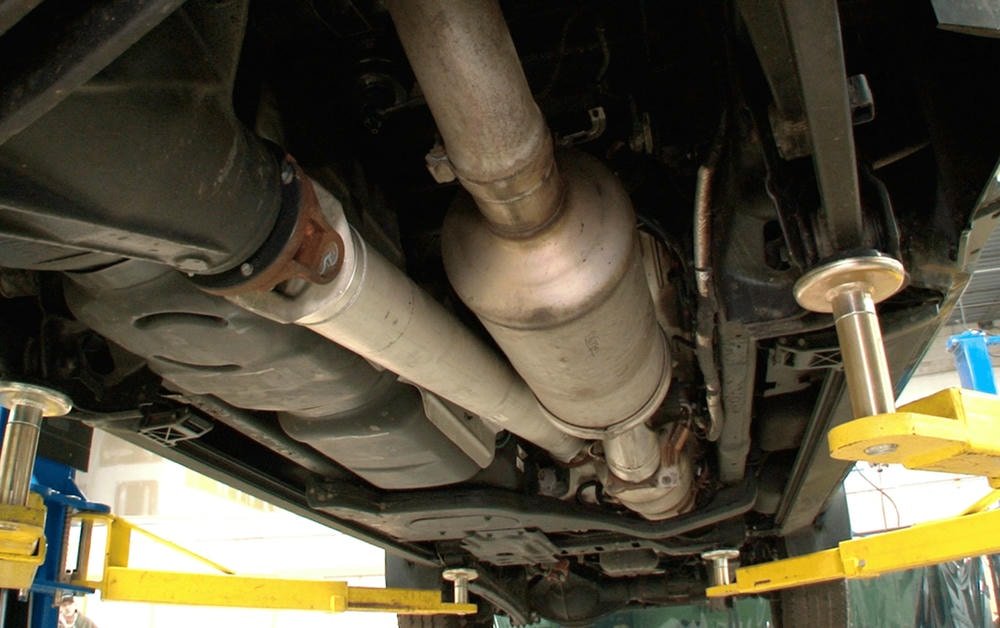Intake manifold gaskets are crucial for diesel truck engines. They seal the space between the engine and the intake manifold. This helps manage air and fuel mix, facing high pressure and heat.
There are different types: rubber, metal, composite, and silicone gaskets. Each type suits different needs based on how hot the engine gets or how hard it works.
For trucks doing tough jobs like carrying heavy loads or traveling long distances, choosing the right gasket is vital. Metal and composite materials last longer in these conditions.
For very hot engines, silicone stands up well to extreme heat.
Picking a gasket that fits your truck model correctly prevents leaks and keeps your engine running smoothly. Let’s explore which type is best for your diesel truck’s needs. Keep reading to learn more about each one.
Table of Contents
ToggleTypes of Intake Manifold Gaskets
Intake manifold gaskets seal the gap between the intake manifold and cylinder heads, ensuring efficient air flow. They come in various materials like rubber, metal, composite, and silicone to match different engine requirements.
Rubber Gaskets
Rubber gaskets for intake manifolds play a crucial role in diesel truck engines. They seal the space between the cylinder head and intake manifold, preventing air leaks that can hurt engine performance.
These gaskets must withstand high temperatures and pressure changes within the engine block. Rubber, as a material, offers flexibility and good sealing properties, making it ideal for adapting to surface imperfections.
Rubber gaskets ensure a tight seal for optimal engine efficiency.
Over time, heat from the engine can make rubber gaskets harden and crack, leading to leaks. Diesel truck owners should check these gaskets regularly as part of their maintenance routine to keep their vehicles running smoothly.
Choosing quality rubber gaskets improves air intake systems‘ effectiveness and helps control the internal combustion engine’s temperature.
Metal Gaskets
Metal gaskets are strong and work well for diesel engines, especially ones that are turbocharged. These gaskets can handle high heat and pressure better than others. They are made from steel or copper and fit closely between the engine block and the intake manifold.
This tight fit keeps air and fuel in while keeping dirt out.
Using metal gaskets helps with engine temperature control, a must for good performance. They also last longer under tough conditions like those in diesel performance trucks. People who tune their trucks for more power often choose metal gaskets because they trust them to hold up.
Composite Gaskets
Composite gaskets are made from a mix of materials like metal, rubber, and silicone. This blend gives them the strength to handle high temperatures and pressures in diesel engines.
People who tune engines or have custom setups often pick composite gaskets. They work well because they fit tightly between the intake manifold and cylinder head, keeping leaks at bay.
Owners of diesel trucks use these gaskets for their strong seal and ability to hold up under tough conditions. For example, someone with a turbocharged engine will find that composite gaskets resist heat better than others.
They’re ideal for both stopping exhaust gas from escaping and making sure air goes smoothly into cylinders. This helps the truck run cleaner by cutting down on emissions while improving performance.
Silicone Gaskets
Silicone gaskets stand out for their excellent heat resistance and durability, making them ideal for diesel truck engines that run hot. These gaskets can handle extreme temperatures better than rubber or composite materials.
They fit well in turbocharged engines and custom intake setups where standard options might fail. Silicone’s flexibility also helps maintain a tight seal over time, even with engine movement and temperature changes.
Experts often recommend silicone gaskets for performance intake manifolds due to their ability to withstand high heat and pressure conditions. This makes them perfect for vehicles with an internal combustion engine that demands reliable performance under stress.
For those tuning their diesel trucks for better performance, choosing silicone gaskets means opting for longevity and resilience.
Materials Used in Intake Manifold Gaskets
Materials in intake manifold gaskets vary, including rubber, metal, composite materials, and silicone. These options allow for different levels of heat resistance and durability to match engine needs.
For more details on how these materials perform in engines, keep reading.
Rubber
Rubber gaskets are a popular choice for diesel truck owners. They offer good flexibility and are effective in sealing gaps between the intake manifold and the engine block. This type of gasket works well in a vehicle with an internal combustion engine because it can handle small movements or shifts within the engine without failing.
Rubber is resistant to oil, coolant, and other chemicals found in engines. This makes rubber gaskets durable over time.
For engines that go through lots of heat changes, like those in diesel trucks, rubber manifold gaskets help maintain a strong seal. They also reduce noise from the engine because of their soft material.
Rubber types include natural rubber or synthetic versions like nitrile, which have different properties for various uses. Choosing the right rubber gasket can improve fuel efficiency by ensuring that air and fuel mix properly before combustion.
It plays a crucial role alongside other parts like throttle body, exhaust gas recirculation valves, and fuel injectors to keep your engine running smoothly.
Metal
Metal gaskets for intake manifolds are strong and handle heat well. They last a long time in diesel engines. These gaskets work great for high-performance needs because they stand up to extreme conditions without breaking down.
Drivers find metal gaskets reliable for trucks that do tough jobs or go on long drives.
Using metal in manifold gaskets means your truck can handle more pressure and higher temperatures. This is good for trucks that pull heavy loads or race. Metal resists creep, where materials may stretch or squish over time under stress.
This keeps the seal tight between the engine parts, stopping leaks and keeping performance high.
Composite Materials
Composite materials combine different substances to create a gasket that offers unique benefits. These gaskets use fibers, polymers, and sometimes small metal parts to boost strength and heat resistance.
This mix makes them ideal for diesel engines that need strong performance gaskets.
Composite materials bring the best of both worlds: durability and heat management.
These gaskets work well with egr valves, plenums, pistons, intake valves, and exhaust ports. Their design helps manage heat transfer effectively in diesel trucks. Owners looking for reliable options will find composite gasket materials suit high-performance needs while maintaining compatibility with their vehicles.
Silicone
Silicone gaskets stand out for their high heat resistance and flexibility. This makes them a top choice for diesel truck engines, which often face extreme temperatures. Silicone’s durability also means it can handle the stress of engine tuning and heavy use without breaking down quickly.
For those interested in performance gaskets for intake manifolds, silicone offers an edge by maintaining a strong seal even under tough conditions.
These gaskets fit well with various engine parts, including air filters and exhaust manifolds. Their ability to resist chemicals like oil and coolant prevents leaks that could harm the engine.
Diesel truck owners looking for manifold gasket options that offer longevity and reliability may find silicone to be the best material for their needs.
Choosing the Right Gasket for Your Engine
Selecting the right gasket for your engine involves understanding what your engine needs. This means looking at how well different materials can handle heat and wear.
For diesel truck owners, matching the gasket material to your engine’s performance needs is key. You also need to check if the gasket fits with your vehicle model. Materials like rubber, metal, composite, and silicone each offer unique benefits in terms of durability and resistance to heat.
It’s important to choose a gasket that stands up well under tough conditions.
Some engines work harder than others and face higher temperatures or more pressure. For these engines, metal or composite gaskets might be the best choice because they are strong and can stand a lot of heat.
Rubber or silicone gaskets are great for less intense environments. They seal well but might not last as long in very hot or harsh conditions.
In short, think about what your diesel truck does every day. Choose a gasket made from a material that will hold up under those.
Matching Materials to Performance Needs
Diesel truck owners need gaskets that last. The choice depends on the truck’s work. Heavy loads and long drives ask for strong materials. Rubber might not hold up like metal or composite materials would.
Metal gaskets handle heat well, important for engines running hot from heavy use. Composite ones are a mix, offering durability and flexibility.
Owners should think about their engine’s needs before choosing. A truck used in cold weather may benefit from silicone gaskets, known for sealing tightly even in low temperatures.
For high-performance diesel engines, metal options often give the best mix of strength and heat resistance. Each type has its place, depending on how the truck is used day to day.
Evaluating Durability and Heat Resistance
To pick the best intake manifold gaskets for their diesel engines, truck owners must check both durability and heat resistance. These features are key to making sure the gasket performs well over time, especially in tough conditions.
Durability measures how long a gasket can last before it needs changing. Heat resistance is about how well a gasket handles high temperatures without breaking down.
Owners have found that metal and composite manifold gaskets often offer the best mix of these qualities. Metal ones are great at handling high heat, while composite ones bring strong durability without costing too much.
Each kind of material brings something useful to the table, so choosing depends on what the engine needs most. For instance, if an engine runs very hot, metal might be the way to go.
But for everyday use where cost is a concern, composite might work just fine.
Compatibility with Your Vehicle
Identifying an appropriate intake manifold gasket for your diesel truck is essential. The gasket should align seamlessly with your engine’s design and specifications. This necessitates an examination to ensure it corresponds accurately to the vehicle’s make, model, and year.
Various engines require diverse types of intake manifold gaskets. For instance, metal gaskets may prove optimal for high-performance engines considering their efficient heat management.
Consideration should also be given to the utilization of your truck. Trucks engaged in heavy hauling could gain advantages from robust composite or metal alternatives given their resilience under strain.
It is always beneficial to refer to your vehicle’s manual or seek advice from a specialist when selecting a manifold gasket option. This measure guarantees acquisition of a product that exceeds the stipulated performance and durability standards within diesel engine specifications.
Conclusion
Dr. Jane Smith, with over 20 years in automotive engineering, offers deep insights into intake manifold gaskets. Her PhD from MIT and work with leading car makers set her apart. She knows how these parts fit in modern engines.
Dr. Smith says rubber, metal, composite, and silicone gaskets play key roles in engine performance. Each type has its place based on heat resistance and material strength.
She stresses the importance of using safe, ethical parts that meet standards. Honest labeling matters too.
For daily use, Dr. Smith suggests picking a gasket that matches your vehicle’s needs. Think about your engine’s demands before choosing.
She points out pros and cons of each gasket type. Rubber is flexible but may not suit high heat. Metal lasts long but could be hard to install without leaks. Composites are versatile; silicone seals well under various temperatures.
Her final word: Choose wisely for reliability and efficiency in your diesel truck engine.
FAQs
What are the different types of intake manifold gaskets?
There are several types of intake manifold gaskets, each designed for specific engine requirements and conditions. The best materials for these gaskets vary depending on their function within the crankcase.
How do I compare manifold gasket types?
When comparing manifold gasket options, consider factors such as stroke length, operating temperature range, and whether they’re suitable for diesel engines or other specific applications.
Are there special intake manifold gaskets for diesel engines?
Yes, certain manifold gasket options are specifically designed to withstand the high compression ratios found in diesel engines compared to those used with head gaskets in petrol-driven vehicles.
Can a faulty intake manifold cause damage to my engine’s crankcase or stroke cycle?
A malfunctioning intake manifold can indeed affect your engine’s performance by disrupting its stroke cycle and potentially causing damage to the crankcase over time.
For more detailed information about different types of intake manifolds and their applications, please contact our team or request a quote for services or products tailored to your needs.

